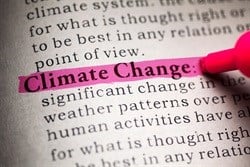
Top stories






More news












The global community must ramp up its financing for climate adaptation in Africa to prevent an "adaptation apartheid" in which rich country governments protect their own citizens but ignore the world's most marginalised people, the Africa Progress Panel said.
Rich countries should commit to spend $35bn per year on Africa's climate adaptation by 2050, according to this year's Africa Progress Report, "Grain, Fish, Money - Financing Africa's Green and Blue Revolutions". Total aid spend on adaptation in Africa was running at around $1.1bn during 2010 and 2011, the report said.
As a continent, Africa may have contributed the least to global climate change but it is expected to be the worst hit. In sub-Saharan Africa, a 2°C warming could reduce crop production by 10% by 2050 and increase the undernourished population by at least 25%, the report said.
"Africa's farmers cannot be allowed to sink or swim under climate change with only their own resources to rely on," it added.
Rich countries may have failed to stick to their adaptation finance promises, but they invest billions of dollars in their own flood defences and insurance payouts for drought, floods and storms, the report said.
The 2011 East Africa drought and the 2013 floods that displaced 100,000 people in Mozambique provide forceful reminders of what the future may hold for Africa.
"No one and no country will escape the impact of climate change. But those with no voice - because they are already marginalised or are not yet born - are at greatest risk," Kofi Annan, former UN secretary-general and chair of the Africa Progress Panel, said.